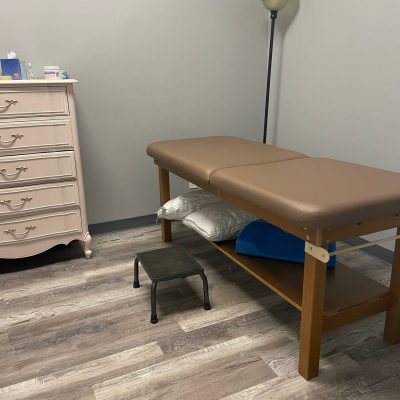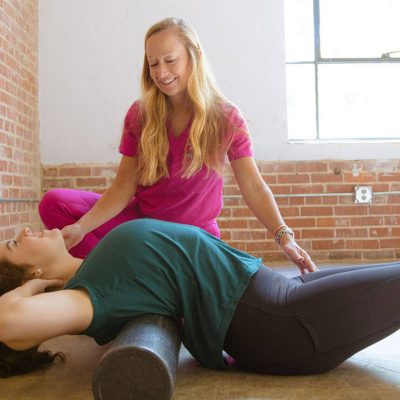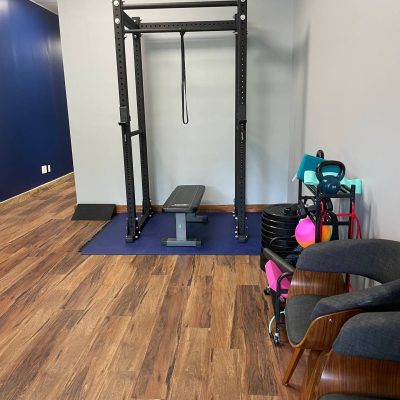How to Get a Good Night’s Sleep by a Pelvic Floor Physical Therapist
Many people have trouble falling asleep at night, or they may wake up in the middle of the night and have trouble going back to sleep. You may be asking, “Why is a Pelvic Floor Physical Therapist writing a blog on sleep?” Besides wanting to feel rested and focused the next day, there are tremendous health benefits to a good night’s sleep. Sleep is important for improved immune function and may even have pain-relieving (analgesic) effects. This is important for people suffering from chronic pain, especially since an estimated 66% of people with chronic pain experience poor or unrefreshing sleep (according to the Sleep Foundation).
A multi-level study by Tang et al in 2012 examined the sleep patterns and pain presentation of 119 men and women (74% of them being women) with both chronic pain and sleep problems. Their results showed that pre-sleep pain was not a reliable predictor of subsequent sleep. Rather, pre-sleep cognitive arousal showed consistent impact on the quality of sleep. In addition, sleep quality consistently predicted pain in the first half of the day (but not so much in the second).
A review by Kundermann and colleagues in 2004 found that pain disturbs sleep by increasing arousal and triggering the neurobiological consequences of stress leading to more disturbed sleep. They also suggested that a higher quality of sleep could lead to better pain regulation and that better pain regulation could lead to more restorative sleep.
Waking in the middle of the night
Many factors can increase the frequency and duration of night-time waking especially those that promote greater levels of hyperarousal or alertness, including mental health issues such as anxiety and depression. Poor diets containing high amounts of stimulants such as caffeine, alcohol, or cigarettes are also common reasons for increased alertness and overall waking more. Other courses of sleep disturbance include sleep-disordered breathing issues (snoring and sleep apnea) and restless leg syndrome. Another reason for waking up in the night is feeling uncomfortable on your mattress or pillow. If yours has seen better days, you may need to upgrade your sleeping quarters to best fit your body type and sleep position.
Breath work to help you fall asleep
There is great evidence behind 4-7-8 breathing to aid in falling asleep. This involves breathing deep into your abdomen and not so much your chest; this means you are trying to get your
diaphragm muscle to lower deep into your belly. The inhale breath through your nose should be 4 seconds long, the inhalation hold should be 7 seconds, and the exhale should be out through pursed lips and last 8 seconds. This 4-7-8 breathing helps to stimulate the Vagus Nerve, which is responsible for relaxation and also digestion. Focussing your attention on something in the moment such as the movement of your breath can be helpful in helping you fall back asleep more quickly. Each time your mind wanders and you start to worry about something, practice gently returning back to focus on the breath and the present moment.
Segmental Relaxation
Another technique to promote relaxation is to segmentally try to relax each body part from your head to your toes. Many people do not realize that tension often starts in the muscles of the scalp, so start with relaxing your eyebrows, followed by the muscles of the mouth, jaw and cheeks (an easy way to do this is to rest your tongue on the roof of your mouth). Then think decreasing tension in your neck and shoulders and letting your shoulders drop. Are you clenching your abdominal muscles or glutes? Relax those as well. Continue to practice your 4-7-8 deep breathing as you think of each body part from your head to your toes relaxing.
So, what can you do today to sleep better and help improve your pain? Develop good sleep habits!
Develop a sleep ritual such as maintaining a 30 minute relaxation period before bedtime and do something like read!
Make sure the bedroom is restful and comfortable. Environmental factors such as the room being too warm, too noisy, or too bright can make sleep more difficult.
Avoid heavy exercise within 2 hours of bedtime. Rather, try to stay active during the earlier parts of the day.
Try not to avoid eating a heavy dinner late at night.
Avoid sleep-fragmenting substances such as caffeine, nicotine and alcohol during the latter part of the day.
Go to bed only if you feel sleepy.
Sleep only in your bedroom.
Maintain stable bed times and rising times. Arise at the same time each morning regardless of the amount of sleep obtained that night.
Avoid daytime napping. If you do nap during the day, limit it to 30 minutes and do not nap, if possible, after 2pm.
Use a sound machine with soothing sounds to assist in lulling you to sleep.
Supplements such as Magnesium Glycinate and Ashwahhanda can assist in physical and mental relaxation and promote better sleep.
Pelvic Floor Physical Therapy can help with improving your diaphragmatic breathing and pelvic floor relaxation. We are also here to decrease any chronic pelvic pain you may have, to ultimately help your sleep and day-to-day function!
Kundermann B, Krieg JC, Schreiber W, Lautenbacher S. The effect of sleep deprivation on pain. Pain Res Manag. 2004 Spring 9(1):25-32
Tang NK, Goodchild CE, Sanborn AN, Howard J et. al. Deciphering the temporal link between pain and sleep in a heterogenous chronic pain patient sample: a multilevel daily process study. Sleep. 2012 May 1:35(5):675-87A







